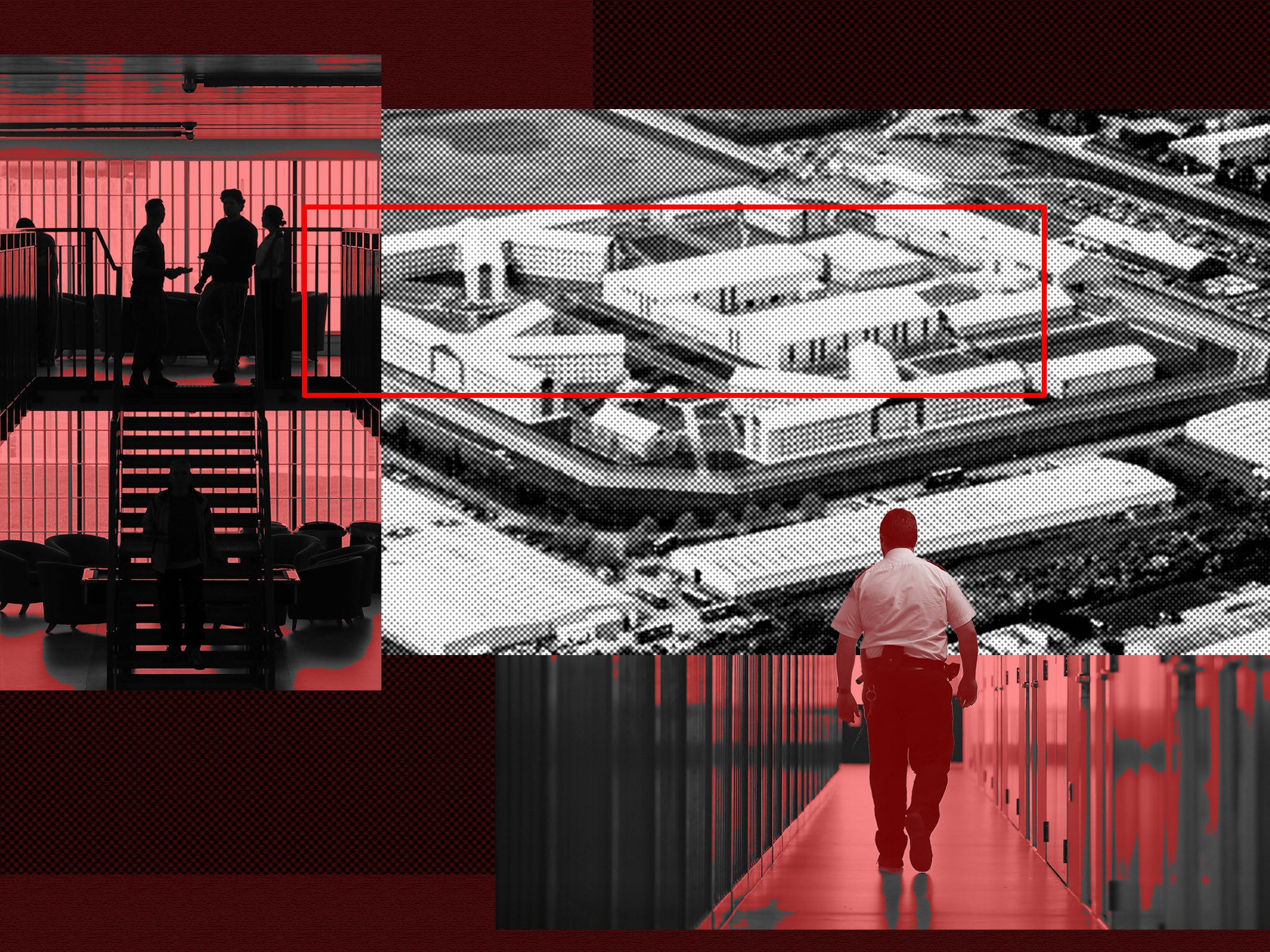Overcrowding in prisons is a ‘powder keg waiting to blow’
Exclusive: Record number of inmates doubled up in single cells - with government forced to build 1,000 portacabins to ease overflow

British jails are being plunged into crisis as they face record levels of overcrowding, new figures reveal.
Shocking statistics released by the Ministry of Justice show more than 85,000 inmates are now locked up in England and Wales, with just hundreds of spaces remaining in prisons across the two countries.
Prison unions say the situation is a “powder keg waiting to blow”, while a watchdog told The Independent he had warned ministers of the stark dangers of overcrowding.
The government is building 1,000 portacabins – officially called “rapid deployment cells” – in a bid to ease overcrowding, while doubling inmates up in single cells and accelerating moves into open prisons.
But internal forecasts predict the prison population will soar past 94,000 within two years, prompted by its own policies and court backlogs clogging the system with remand prisoners awaiting trial.
An emergency plan to use 400 police cells as overflow was announced in December but has not stopped numbers soaring, and a new prison promised in “early 2023” has not yet opened.
Charlie Taylor, HM chief inspector of prisons, said: “Men spend longer inside their cells, have less fresh air, exercise or access to the activities and interventions that help reduce their risk of reoffending and support their mental and physical wellbeing.
“We have said repeatedly how worried we are about the state of purposeful activity in prisons, and we are also very concerned about levels of self-harm.
“Most prisoners will be released at some point, and if we are not supporting their rehabilitation but are in fact causing them further harm through never-ending bang up, what do we expect to happen when they are released?”
Mick Pimblett, assistant general secretary of the Prison Officers’ Association (POA), warned that summer routinely sees an increase in disorder and assaults inside prisons, and that the addition of overcrowding and staff shortages makes the situation a “powder keg waiting to blow”.
“What history has shown is that where there is overcrowding in prisons, that will only lead to one thing - disturbances,” he told The Independent.
“Prisoners are being locked up for 23 hours a day with no education, no association, no work.
“WIth the increased populations there is less opportunity for them to have any meaningful regime … that can only lead to prisoner frustration and violence taking it out against our members.
“We are just warehousing prisoners and we are not fulfilling our function to rehabilitate them to lead law-abiding lives.”
Official figures show that, as of 19 May, there were 85,193 inmates imprisoned and 86,150 cells in the total “useable operational capacity” of prisons in England and Wales – leaving just 957 cells free.
When the 85,000 bar was last hit in 2017, overall capacity was greater and there was a more comfortable margin of 1,300 empty places.
The prison population is soon forecast to overtake 2012’s historic record of 87,000 inmates and a Ministry of Justice report published in February put the shift down to efforts to clear court backlogs, as well as government policy.
“It is projected to increase steadily to reach 94,400 prisoners by March 2025 and between 93,100 and 106,300 by March 2027,” the document said.
Boris Johnson’s drive to recruit 20,000 extra police officers is expected to add to the load by increasing arrests and prosecutions, while successive Conservative governments have introduced a barrage of new laws lengthening maximum sentences and increasing the amount of time served in prison before release on licence.
The average custodial sentence has jumped from 14 months in 2012 to almost two years in 2022, and a package of laws introduced last year moved the potential release point for serious violent and sexual offenders from halfway through a sentence to two-thirds.

As justice secretary, Dominic Raab slowed the process further by curbing transfers into open prisons last year, and was seeking to give himself the power to stop the release of some criminals even when found safe by the Parole Board.
Meanwhile, the number of people being held in jail before trial has rocketed because of court backlogs caused by government budget cuts and Covid, and temporarily worsened by last year’s barristers’ strike.
By the end of last year, the number of people in prison on remand was the highest figure for at least 50 years, with some spending many months inside before being found innocent.
Steve Reed, the shadow justice secretary, said: “After 13 years, the Conservatives’ rampant mismanagement of our prisons have left dangerous criminals to roam the streets.
“Rishi Sunak’s Conservatives have gone soft on crime, leaving the public at risk.”
Andrew Neilson, director of campaigns at the Howard League for Penal Reform, said successive governments had “repeated the mistake of trying to tackle crime by growing the prison population, only to find that this makes matters worse”.
“Sensible action to reduce the prison population would ease pressure on an overcrowded and under-resourced system that fails to keep us safe and holds the country back,” he added.
The Prison Reform Trust called for urgent change to ease “dangerous overcrowding”.

Chief executive Pia Sinha added: “These alarming figures reveal a prison service running on empty. Too many people in prison is what undermines every aspect of the government’s ambition for a decent, safe, rehabilitative system.
“Ministers cannot build their way out of this crisis. They urgently need a plan to reduce the unnecessary use of custody so prisons can be given the headroom they so desperately need.”
The Ministry of Justice said it was on course to fulfil a promise of creating an additional 20,000 prison places, by building six new prisons and delivering expansions and refurbishment elsewhere. It said new prison HMP Fosse Way, near Leicester, would open soon.
A spokesperson added: “We make no apologies for taking more dangerous criminals off the streets for longer while delivering the biggest expansion of prison places in over a century.
“As the public would rightly expect, we’re also taking action to accelerate additional capacity in the immediate term, including rolling out hundreds of rapid deployment cells – with the first already in place at HMP Norwich.”






Join our commenting forum
Join thought-provoking conversations, follow other Independent readers and see their replies
Comments